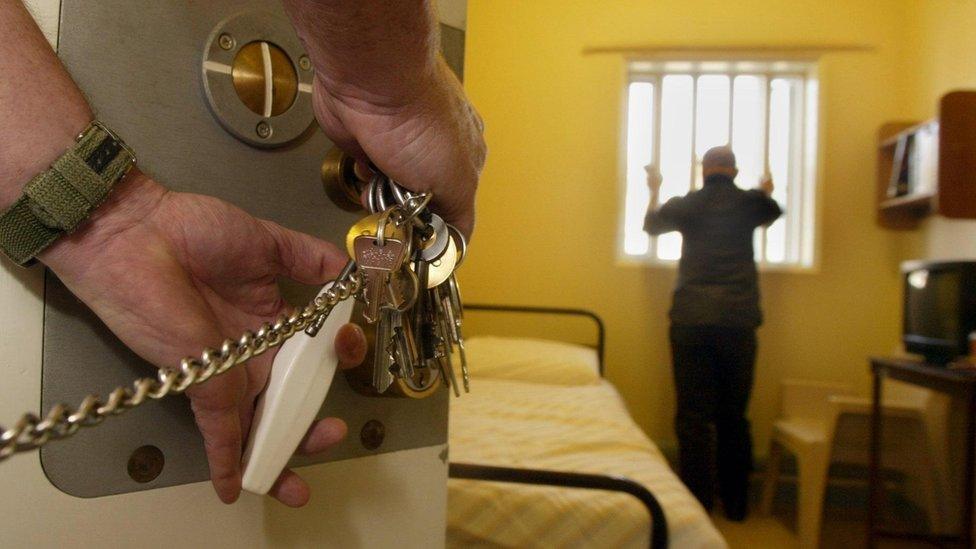Suicide jail failed to improve, says doctor
- Published
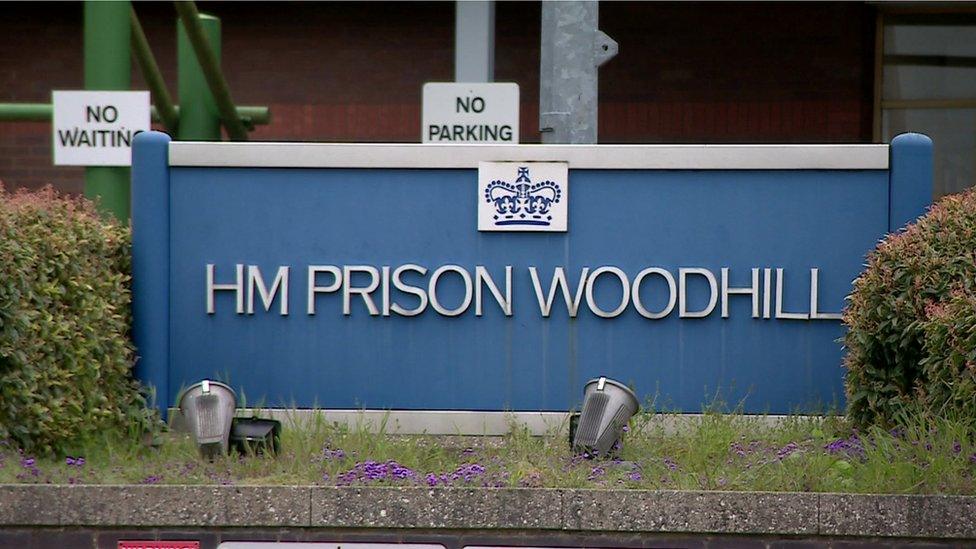
Staff shortages at Woodhill Prison have made change impossible, according to a prison psychiatrist
Safety improvements were not made at a prison with the highest suicide rate in England and Wales despite a spate of deaths, a psychiatrist has told the BBC.
Dr Elizabeth van Horn quit her job at Woodhill Prison in April, saying staff shortages had made change impossible.
Families of some of those who died are due to learn if judges will order the government to make the prison safer.
The Ministry of Justice said it could not comment ahead of the court ruling.
Since 2013, 18 inmates have killed themselves at Woodhill Prison in Milton Keynes.
The jail houses both Category A prisoners and convicts from the local area on short sentences.
The courts, the Prisons and Probation Ombudsman, external and the prison's own independent monitoring board, external have all raised concerns.
These include chronic understaffing, over-reliance on agency and temporary staff, while, as well as suicides, assaults on both staff and inmates have also risen in recent years.
Early last year Dr van Horn was asked to go to Woodhill, working two days a week.
The experienced clinical psychiatrist had already spent six years working in other prisons, including Pentonville and Wormwood Scrubs, in London.
Her first impressions were not good.
"I was very struck by the lack of staff.
"There were lots of gaps in the discipline staffing regime, and anecdotally, certainly for the last six to eight months, quite a lot of the staff were quite newly trained and inexperienced."
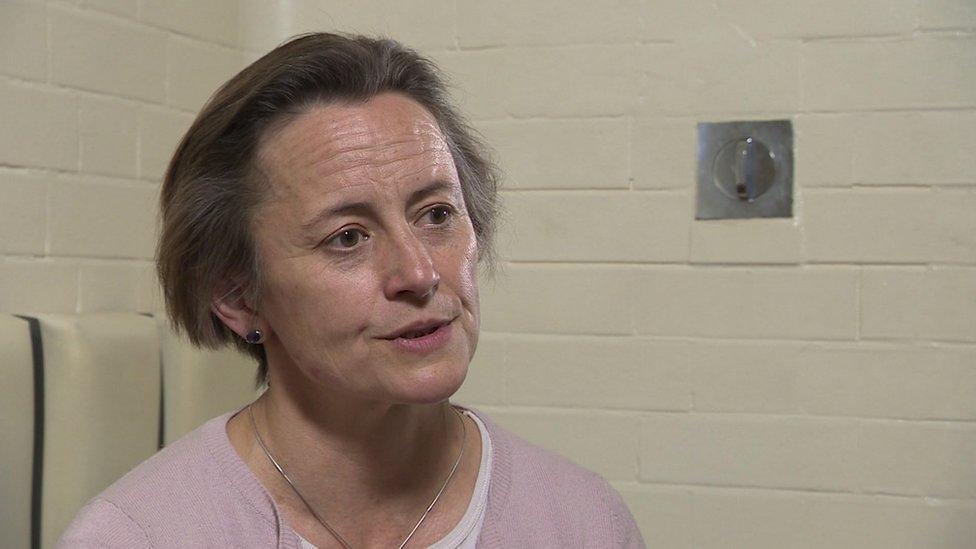
Dr van Horn resigned in frustration at being unable to make the improvements prisoners needed
Asked if anything had changed at the prison following each suicide, as management had promised families and the courts, Dr van Horn was clear: "No, not really, not in terms of an obvious change.
"It's not a question of not knowing what needs to be done better, because often these inquests throw up the same issues - but how do you achieve that?
"And I think not having a stable workforce is a fairly primary problem in terms of achieving these goals.
"You can only get things done if you've the workforce to do it."
Staff shortages can see inmates locked up for 23 hours a day, a major cause of mental health problems, she told the BBC.
"Particularly for people with pre-existing mental health problems, that is an added burden...
"And when they complain about it, they are often seen to be attention-seeking, but in fact, they can't cope with that degree of isolation.
"What they need is to have meaningful activity, more social contact and less time isolated on their own."
'In crisis'
The families who brought the legal action at the High Court have been supported by the charity Inquest, which has become exasperated with management at the prison.
"Woodhill is a graphic example of a prison system that is in crisis," said the charity's director, Deborah Coles.
"We have no proper mechanism to ensure that recommendations made by inquests, by Prison Ombudsman investigations, are followed through, that action is actually taken".
Suicides in jails in England and Wales almost doubled since 2012 to 120 last year, while prison officer numbers have fallen by more than 4,500, official figures show.
Overall, nearly £1bn has been cut from the prison and probation service in recent years.
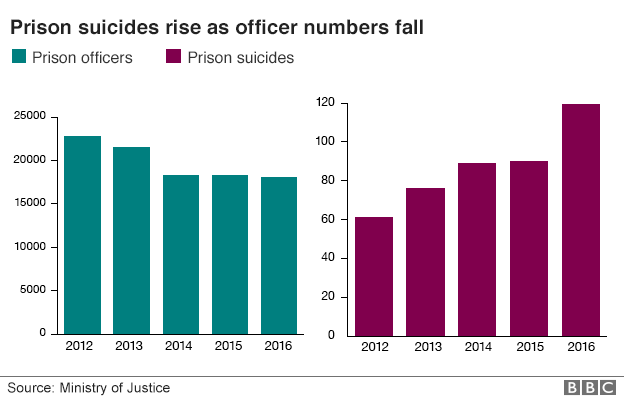
But, in what might be seen as an acknowledgement that the cuts have gone too far, the Ministry of Justice now plans to recruit 2,500 new prison officers.
But, according to one former inmate, staff quality matters as much as quantity.
"We're getting the wrong sort of staff," said Jamie Blyde who has been in and out of Woodhill for over a decade.
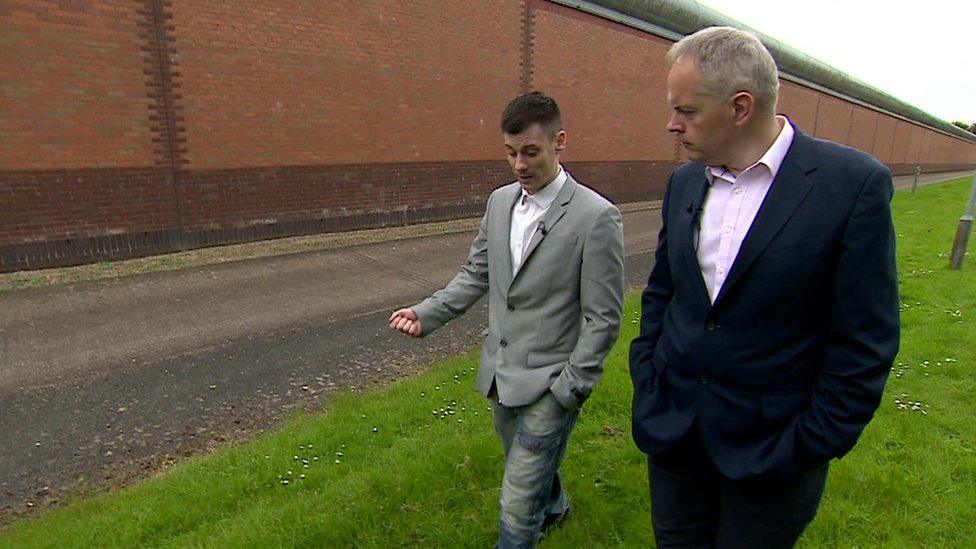
Former Woodhill inmate, Jamie Blyde (left), knew seven of the 18 prisoners who killed themselves
He was in a neighbouring cell-block last summer when his brother Daniel Dunkley, external killed himself.
Jamie knew seven of the 18 prisoners who killed themselves at Woodhill.
"We used to get all the ex-forces, guys that could be annoying and hard to be around but they were straight and you knew where you stood with them.
"They were safe and would do everything by the book.
"We don't seem to have as many of them anymore, we're getting a lot of under-qualified people, a lot of people that are not meant for the job."
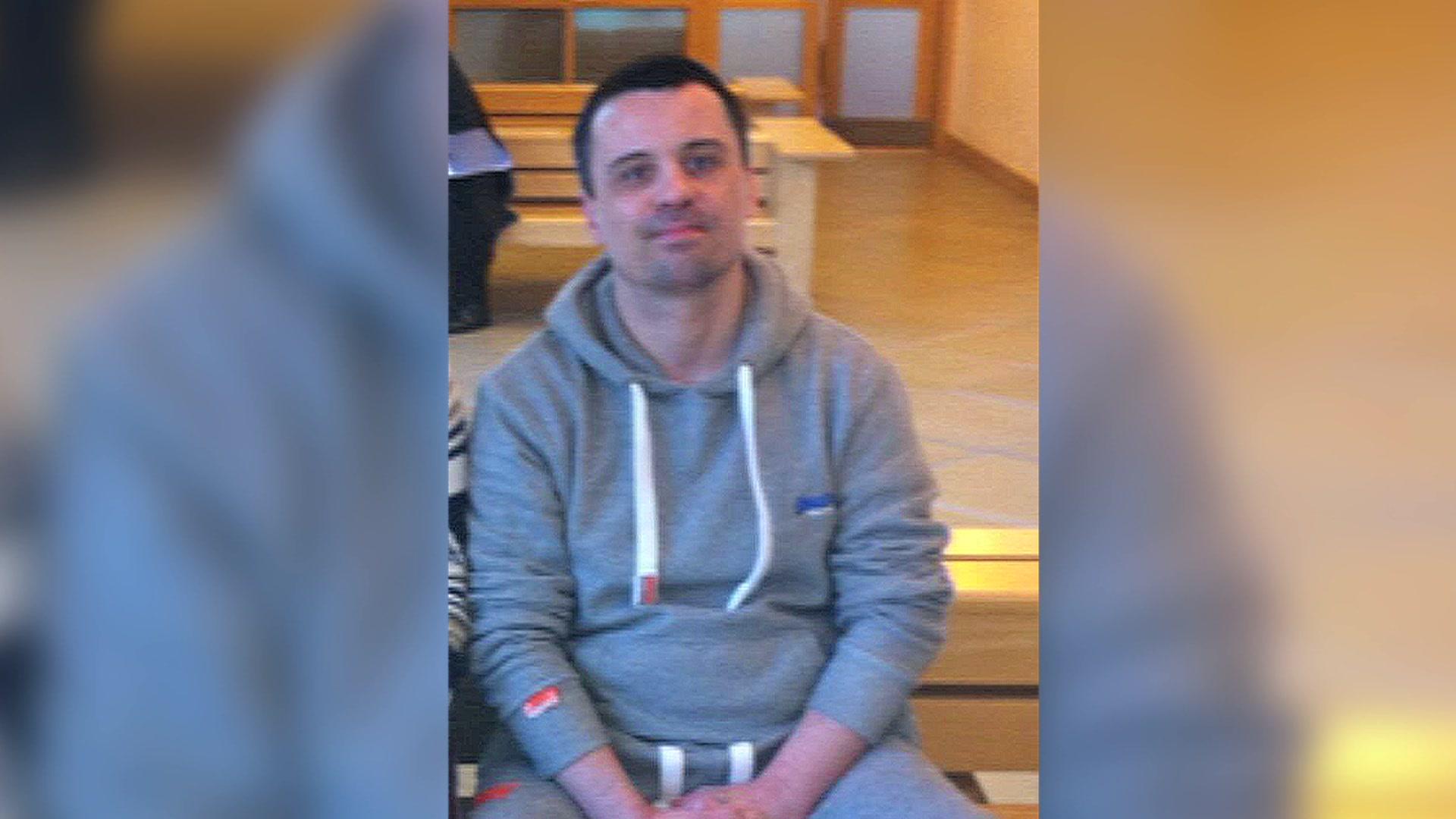
Daniel Dunkley took his own life at Woodhill last summer
Any improvements at Woodhill will be too late for Ralph Morris.
The prison's failure to listen to his concerns, and the concerns of others, has cost him his son.
Tom, 31, killed himself at Woodhill last summer.
His father wrote to the prison in April warning them that his son was suffering from paranoid schizophrenia.
Following the letter, he learned that his son had attempted to kill himself. He succeeded last June.
After Tom died, dozens of inmates sent Ralph a letter which they also copied to the prison authorities.
The prisoners stated that everyone knew that Tom was ill: "And by everyone, we mean inmates and staff and health professionals".
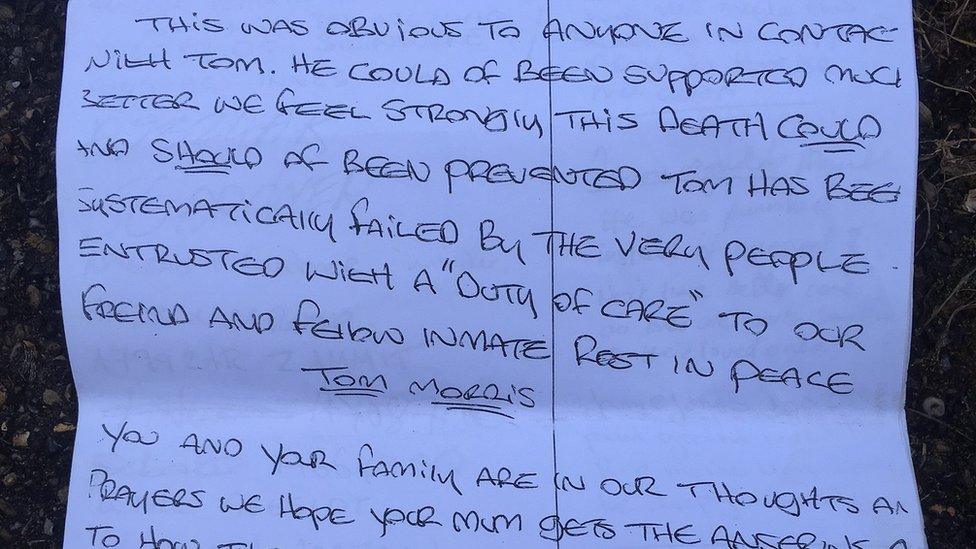
Tom Morris was "systematically failed" said fellow prisoners in a letter to his father
They conclude that Tom was "systematically failed by the very people entrusted with a duty of care".
"It's a powerful letter," says Ralph, who thanked the inmate who instigated it.
"He said that everyone on the wing was angry at the system.
"I do think, had we have not had that sort of information, we may not have known whether Tom's life could have been saved".
- Published26 January 2017
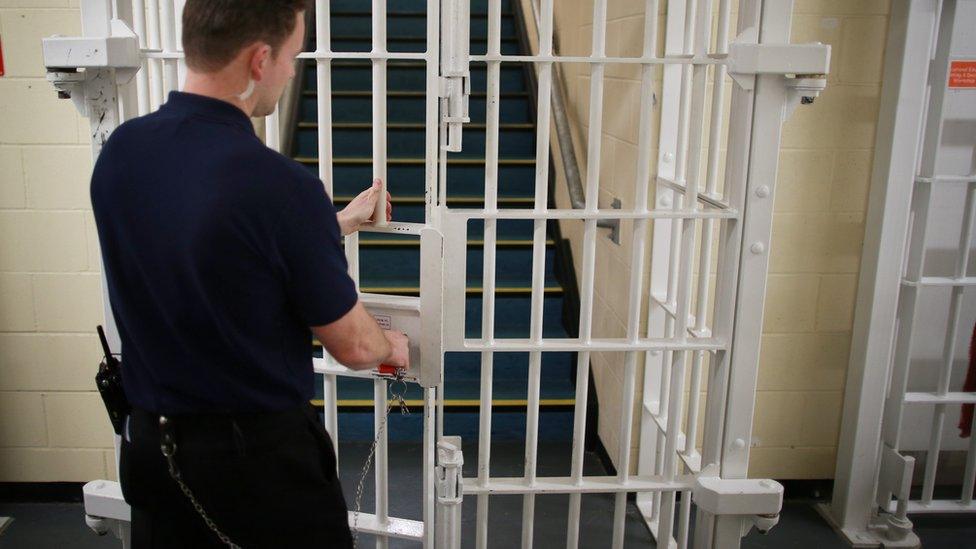
- Published28 November 2016
